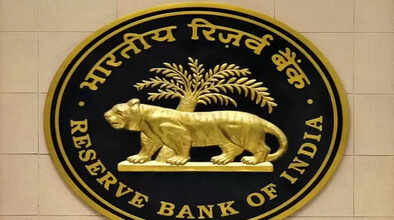With this guideline of the RBI, the loan rules will change for banks! Know how your money will be safe with the rules of ECL?

RBI can bring final guidelines on ECL in the next 2-3 months, which will come into effect from April 1, 2026. Know what this new rule, which will change the way banks give loans and provisioning will have to be done before NPA is formed.
RBI ECL Guidelines: A very big and exclusive news is coming from the world of banking. The Reserve Bank of India (RBI) is preparing to bring such a rule, which will completely change the way banks give loans and keep accounts of it. According to confirmed information from sources, RBI is going to issue final guidelines on ECL (Expected Credit Loss) i.e. 'estimated credit loss' in the next 2 to 3 months.
This new rule will be applicable to all banks from April 1, 2026. Now you must be wondering what is this ECL? And what difference will it make to us or the banks? So let us explain this whole matter to you in very simple language today, because this change is going to prove to be a milestone for the Indian banking system.
What is the system now?
First of all, let us understand how banks keep track of loans now. Suppose, the bank gave a loan of Rs 10 lakh to a person. Under the current system, the bank takes a sigh of relief as long as that person is paying his EMI (monthly installment) on time. But as soon as that person stops paying EMI and does not pay any installment for 90 days, the bank declares that loan as NPA (Non-Performing Asset) i.e. 'stuck loan'. After being declared an NPA, the bank starts keeping some money aside from its earnings to compensate for that possible loss. This is called provisioning. This model is called ICL (Incurred Loss Model).
What is RBI's new ECL model?
Now RBI wants to change this old method. The ECL model is a "Forward-Looking Approach", that is, it works by looking at the future. Under this new rule, as soon as the bank gives a loan to someone, it will have to estimate at the same time how much risk there is of this loan going bad in the future. Looking at the financial condition of the customer, his credit score, and the market conditions, the bank will decide how much loss can be incurred on this loan. Based on this estimate, the bank will have to start provisioning (keeping money aside) little by little from the day of giving the loan.
The biggest advantage of this is that the bank will not wait for any loan to become an NPA. It will be ready for any possible loss from day one. This is an international banking standard, which has been adopted in most of the big countries of the world. RBI had issued draft guidelines on ECL on January 16, 2023.
What will be the effect of this change on the common man?
Banks will be stronger: With this rule, banks will become financially stronger. They will be better prepared to face any economic crisis in the future. This will make your money kept in banks even safer.
Getting a loan may be a little difficult: Because banks will now have to assess the risk of the loan and make provisioning as soon as they give it, so they will now be more careful. It is possible that people who have a poor credit score or whose income is not stable may find it a little more difficult to get a loan.
Frequently Asked Questions (FAQs)
Question 1: What does ECL mean in simple language?
Answer: ECL means that the bank will not wait for a loan to become an NPA (stuck loan), but will start setting aside some money for it in advance by estimating the future risk while giving the loan.
Question 2: When will this new rule come into effect?
Answer: This new rule may be mandatory for all banks from April 1, 2026.
Question 3: Will this have any effect on my existing loan?
Answer: No, this rule is related to the internal accounting and provisioning of banks. It will not have any direct effect on the EMI or terms of your existing loan.
Question 4: Why is RBI making this change?
Answer: RBI wants to bring the Indian banking system at par with international standards. This rule will make banks more financially strong and prepared for any economic crisis.
Question 5: Will it become more difficult to get a loan after this rule?
Answer: Possible. Since banks will now be more cautious about the risk of loans, they can check the customer's credit history and repayment capacity more strictly before giving a loan.

